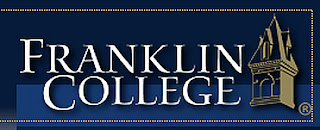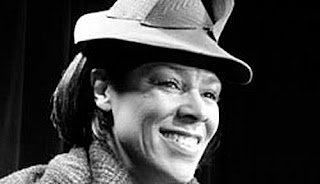Kick off Black History Month Four Days Early! 11th Annual African American Cultural Celebration.
When the Westover High School percussion section marches into the N.C. Museum of History in Raleigh on Saturday, Jan. 28, it will be a rousing start to the museum’s 11th Annual African American Cultural Celebration. This large festival from 11 a.m. to 4 p.m. features more than 75 presenters — well-known musicians, award-winning authors, storytellers, dancers, playwrights, re-enactors and others — who will highlight the contributions of African Americans to North Carolina.
Incredibly, this event and weekend parking are absolutely free. From performances of African rhythms of Djembe Talk (drum talk) by Eugene Taylor to the uplifting a capella harmonies of the men’s quartet the Mighty Gospel Inspirations, the celebration offers a lively mix of entertainment. Engaging presenters range from children’s author Kelly Starling Lyons to basketmaker Neal Thomas. And there’s plenty for kids: a scavenger hunt, hands-on crafts, and more.
In honor of the festival’s 11th year, the African American Cultural Celebration salutes the contributions of North Carolina’s 11 historically black colleges and universities (HBCUs) — the largest number of any state in the nation.* All 11 HBCUs will be represented. This includes a presentation by Dr. Dianne Boardley Suber, President of St. Augustine’s College in Raleigh.
 | The African American Cultural Celebration is presented in six categories that encompass culture and history. Several event highlights follow. For a complete schedule of all performances and presentations, go to ncmuseumofhistory.org. |
Celebrate Music and Movement
Catch performances by these musicians and a dance group:
● to songs from gospel’s “Golden Era” (1940s-1950s) by the men’s quartet the Mighty Gospel Inspirations, a capella.
Shana Tucker, an award-winning jazz cellist, singer and songwriter whose music is described as “a sultry pastiche of acoustic pop and soulful, jazz-influenced contemporary folk;”
● Ironing Board Sam, known as a master showman, the blues and R&B singer, songwriter and piano player was wildly popular on the New Orleans music scene for decades;
● world-renowned jazz pianist Elmer Gibson;
● Winston-Salem State University Burke Singers, a nationally known female a cappella group that has performed internationally;
● Raleigh’s Leviticus, a hip-hop group that has performed to sold-out audiences at the famous Apollo Theater in Harlem.
● KidZNotes, 30 children from a Durham program that is a partnership with the N.C. Symphony, will share classical music; and
● Zumba® with the Zeiglers, a couple inviting you to move to this Afro-Cuban dance-fitness phenomenon.
Celebrate History, Drama and Film
Learn about African American life from these individuals and groups:
● the performance group Voices in Concert, dramatizing a scene from “Sojourner and Her Children,” about the family life of 19th-century abolitionist and women’s right activist Sojourner Truth;
● Betty Jamerson Reed, discussing her new book School Segregation in Western North Carolina: 1860s-1970s; and
● re-enactors presenting a Civil War re-enactment focusing on Fort Fisher; Battery B, 2nd U.S. Colored Light Artillery, 18th Army Corps; and the 37th U.S. Colored Troops.
Celebrate Literature and the Spoken Word
Hear from authors and storytellers who will share the expertise:
● a panel discussion led by poet and author Lenard Moore, with four members of the African American Writers’ Collective;
● a presentation by Linda Beatrice Brown, author of Black Angels and a professor at Bennett College for Women; and
● Kelly Starling Lyons, reading from her new children’s book Ellen’s Broom, about the tradition of “jumping the broom.”
Celebrate Craft and Arts Traditions
Watch these artisans and others at work:
● furniture maker Jerome Bias, doll maker Marilyn Griffin; and wire artist Jonathan Daniel;
● the Ebony Raleigh Area Group Stitchers and the African American Quilt Circle; and a
● a robotics demonstration presented by N.C. A&T State University.
Celebrate Food, Health and Beauty
Learn about beauty products, cooking and healthy living:
● a presentation about Dudley’s Hair Care and Cosmetics, one of the most successful African American-owned hair care and cosmetics companies in the world, that was featured in Chris Rock’s film “Good Hair;”
● Rhonda Muhammad, featuring cooking demonstrations of traditional foods; and
● the Green Space Initiative, focusing on organic gardening and leading the workshop How to Eat for $10 a Week.
Celebrate Education and Heritage
Get information about historic sites, museums and organizations across North Carolina:
● representatives from the Montfort Point Marines Museum, the Rosenwald School Project, the N.C. Freedom Monument Project, the TeenFest Foundation, and many more.
Mark your calendar for Jan. 28 for this fun-filled festival at the N.C. Museum of History. The African American Cultural Celebration is supported by the Wells Fargo, North Carolina African American Heritage Commission, the North Carolina Museum of History Associates, and the United Arts Council of Raleigh and Wake County, with funds from the United Arts campaign as well as the North Carolina Arts Council and the National Endowment for the Arts, which believes a great nation deserves great art.
For more information about the N.C. Museum of History, call 919-807-7900 or access ncmuseumofhistory.org or Facebook.
* Barber-Scotia College, Concord; Bennett College, Greensboro; Elizabeth City State University; Fayetteville State University; Johnson C. Smith University, Charlotte; Livingstone College, Salisbury; North Carolina A&T State University, Greensboro; North Carolina Central University, Durham; St. Augustine’s College, Raleigh; Shaw University, Raleigh; and Winston-Salem State University.
About the N.C. Museum of History
The museum is located at 5 E. Edenton Street, across from the State Capitol. Parking is available in the lot across Wilmington Street. Hours are Monday through Saturday, 9 a.m. to 5 p.m., and Sunday, noon to 5 p.m. The Museum of History, within the Division of State History Museums, is part of the N.C. Department of Cultural Resources.
About the N.C. Department of Cultural Resources
The N.C. Department of Cultural Resources annually serves more than 19 million people through its 27 historic sites, seven history museums, two art museums, the nation’s first state-supported symphony orchestra, the State Library, the N.C. Arts Council, and the State Archives. Cultural Resources champions North Carolina’s creative industry, which employs nearly 300,000 North Carolinians and contributes more than $41 billion to the state’s economy. To learn more, visit
www.ncculture.com.Fayetteville State University News and Information Media Contacts: For Immediate Release Susan Friday Lamb, 919-807-7943 Emily Grant, 919-807-7979






























